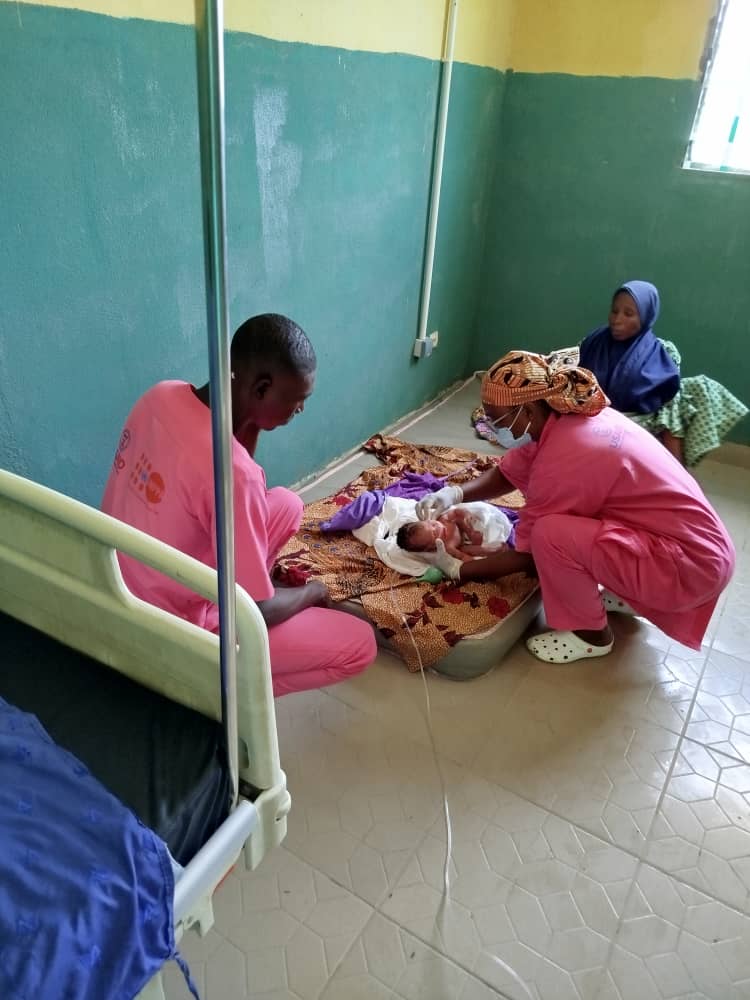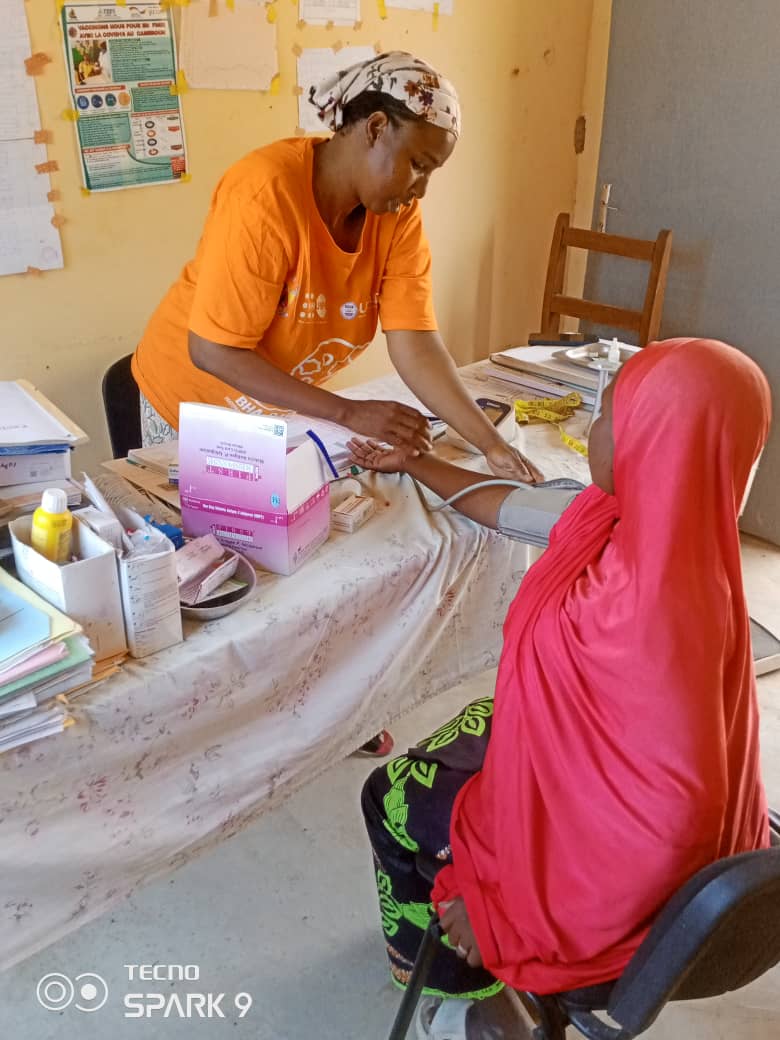News
“A race against time”: Djamila’s journey to hospital by canoe in flood-ravaged Cameroon
- 11 September 2024
News
FAR NORTH REGION, Cameroon – As Djamila* clutched her pregnant belly, the floodwaters rose around her, threatening to engulf the fragile canoe she had escaped in.
“The water was everywhere,” she told UNFPA, the United Nations sexual and reproductive health agency. “I was so scared – not just for myself, but for my babies. Every minute felt like an eternity.”
At 18, this was her first pregnancy – and she was expecting twins. Yet the only time she had received any kind of prenatal care had been four months earlier, when a UNFPA-supported mobile health clinic visited her village of Ngouma, near Lake Chad.
Djamila’s story is a common but harsh reality for countless women in remote areas in the Far North region of Cameroon. Here access to health care is scarce in ordinary times, and in the rainy season can be impossible to reach at all: Now with the recent heavy flooding, many health facilities have been severely damaged and thousands have been forced from their homes.
In Djamila’s village births usually take place at home, unattended by a trained health worker. But her delivery with twins was already considered high-risk, even before the floodwaters diminished her access to emergency care. When she went into labour, things went from bad to worse: Hers was prolonged and obstructed, complications that can be life-threatening without adequate, specialized care – and specifically a trained midwife.
Plans were swiftly made to transport Djamila to the nearest health centre, the Mada District Hospital, by the only means possible – a canoe.

A beacon of hope
The Mada District Hospital is a lifeline for women and girls in the region, especially as it offers services such as Caesarean sections for complicated deliveries.
“When Djamila arrived, it was a race against time,” explained Dr. Mohamadou, the hospital’s director. “Her babies were struggling to breathe. Thankfully, we had the midwife by her side.”
Ms. Amadama has worked as a midwife for eight years and received training from UNFPA on sexual and reproductive health in emergencies. Following the delivery, she quickly and skillfully cleared the airways of both babies. “I knew we couldn't give up,” she told UNFPA. “With every breath, every heartbeat, hope flickered a little brighter.”
The cries of Djamila’s newborn twins, weak but alive, filled the room. “I don't know what would have happened without UNFPA,” said Djamila. “They gave me a second chance, a chance to be a mother to my twins.”

Women and girls at the forefront of a crisis
The deepening humanitarian crisis in Cameroon is estimated to be affecting some 3.4 million people, among whom are more than 88,000 pregnant women. Added to the violence and insecurity, climate change is only exacerbating the frequency and severity of floods: In 2024, rainfall – and consequently the potential for flooding – in the North and Far North Regions was forecast to be 25 per cent higher than average for the season.
UNFPA supports the Mada District Hospital with emergency training for health-care providers as well as supplies including emergency obstetric kits and neonatal resuscitation equipment, ensuring that skilled birth attendants like Ms. Amadama have the resources they need. ‘Baby boxes’ containing essentials for newborn and new mothers are also distributed to the most vulnerable women.
With funding from the United States, this is part of a multi-district initiative to provide sexual and reproductive health services for more than 50,000 people in the Far North, North West and South West regions of Cameroon.
UNFPA is urgently appealing for just over $1.1 million to scale up sexual and reproductive health services as well as gender-based violence response and prevention in areas affected by flooding, to meet the needs of some 129,000 people – the large majority of whom are women and girls.